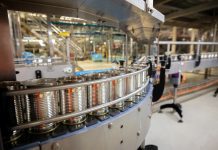
Media Release
Life-changing new medical and enabling technologies designed alongside the people who need them will be created by MedTechVic, a ground-breaking initiative by Swinburne University of Technology.
Led by Swinburne, and working closely with industry and community partners, MedTechVic will bring people living with disabilities together with world-leading technology and experts in design, digitalisation, health and manufacturing to create innovative tailor-made medical and assistive devices.
Swinburne has received a $6.7 million boost from the Victorian Government to fund this first-of-its-kind hub.
‘Technology plays an increasingly important role in the healthcare sector, changing and improving the delivery of clinical care in hospitals and in the home,’ she said.
‘At Swinburne, we are uniquely placed to bring together the best aspects of design, digitalisation and human needs to develop and deliver innovative and scalable devices to meet increasing global demand.
‘Our goal is to bring individuals with a lived disability, their carers, allied health and clinical professionals, engineers, designers and industry together as active collaborators to enhance lives and build a better world.
‘We are grateful to the Victorian Government for its support in bringing this important initiative to life,’ says Professor Quester
Partnering with large and small companies, start-ups, accelerators and people with specific unmet needs, MedTechVic will drive new opportunities for both the users and suppliers of these technologies.
MedTechVic co-directors, Swinburne’s Professor Sally McArthur and Professor Rachael McDonald, say the platform will centre the perspectives and insights of those who will use the enabling technology to secure better and faster outcomes for all.
‘MedTechVic represents an inclusive future for medical innovation, driven by those who need it most,’ says Professor McArthur.
‘We will ensure that novel devices are rapidly validated – both clinically and technically – prototyped and manufactured. In addition, MedTechVic will develop community and workforce skills to engage in the development of new technologies and services,’ says Professor McDonald.
Enabling Technologies Platform
As part of the initiative, MedTechVic will create the first Australian Assistive Technology Living Facility (LivingAT) at the Health Precinct on Swinburne’s Hawthorn campus to develop new assistive technologies.
This will act as an innovation cluster, an ecosystem, and a community to create, evaluate and inform new technologies with a human-centred design approach.
This will include a Microsoft AR/VR Volumetric Capture Studio that allows the personalisation of devices, the first of its kind in Victoria.
MedTechVic will also:
- support Victoria’s MedTech industry to take the digitisation journey necessary to create new products and services through advanced manufacturing.
- improve the lived experience of people with disabilities through industry partnerships, PhD and Masters scholarships and work-integrated learning that support end user and industry needs.
- train clinical and allied health professionals to become specialist advisors for MedTech companies and entrepreneurs through a Clinical Innovation Program.
Swinburne at the cutting edge of MedTech
Swinburne has a proven record of translating game-changing ideas into real medical and assistive products.
Recent examples include:
- Hearables3D, a Melbourne-based start-up spun out of Swinburne, that produces custom-fit hearing devices accessible and affordable for everyone. They recently raised $1 million to expand globally.
- Swinburne researchers have been working with Universal Biosensors to develop technology to detect cancer from a single drop of blood. A handheld electrochemical device, similar to the glucose meters used by diabetics, could be on the market within the next five years.
- Master of Entrepreneurship and Innovation students collaborating with Swinburne-led medical technology startup, NovaSense Biomedical, to consider and accelerate commercialisation pathways. NovaSense Biomedical produce Cue Sleeve, a motorised, wearable sleeve that provides motion guidance for people with vision impairment.
Swinburne’s ARC Training Centre in Biodevices worked in collaboration with various industry partners, focusing on identifying and implementing best practices for global competitiveness in MedTech product innovation, including opportunity identification, product design and development, quality systems, manufacturing processes, firm organisation and management.




















